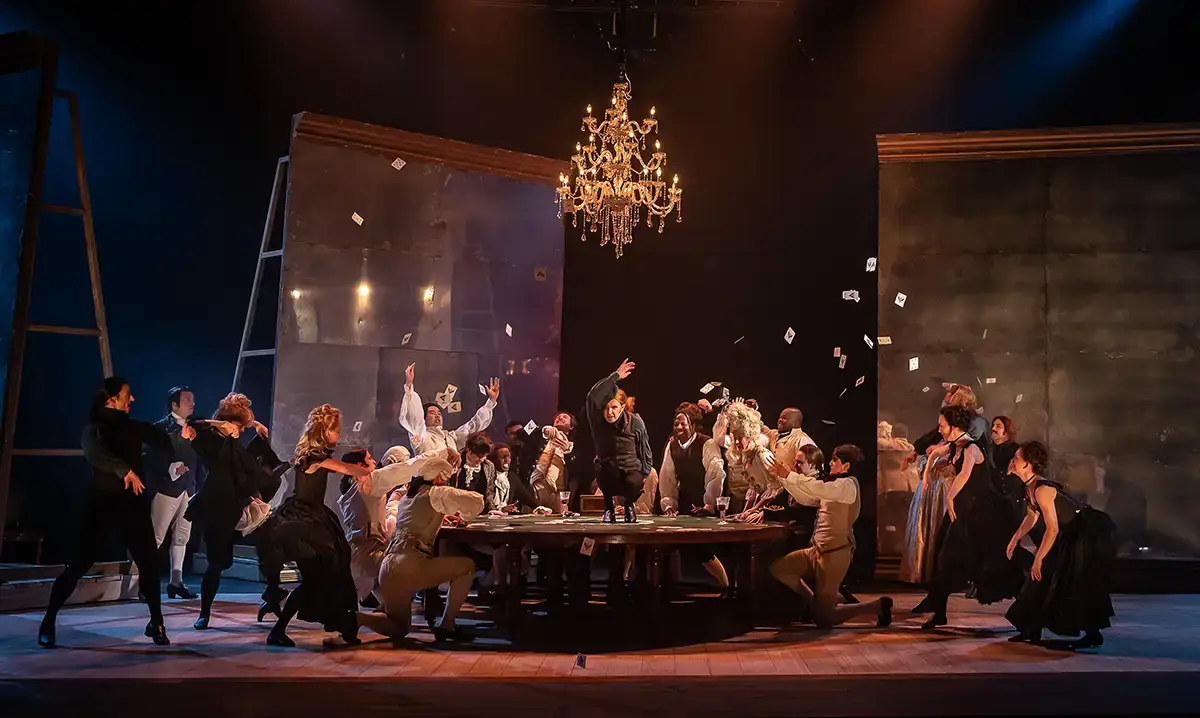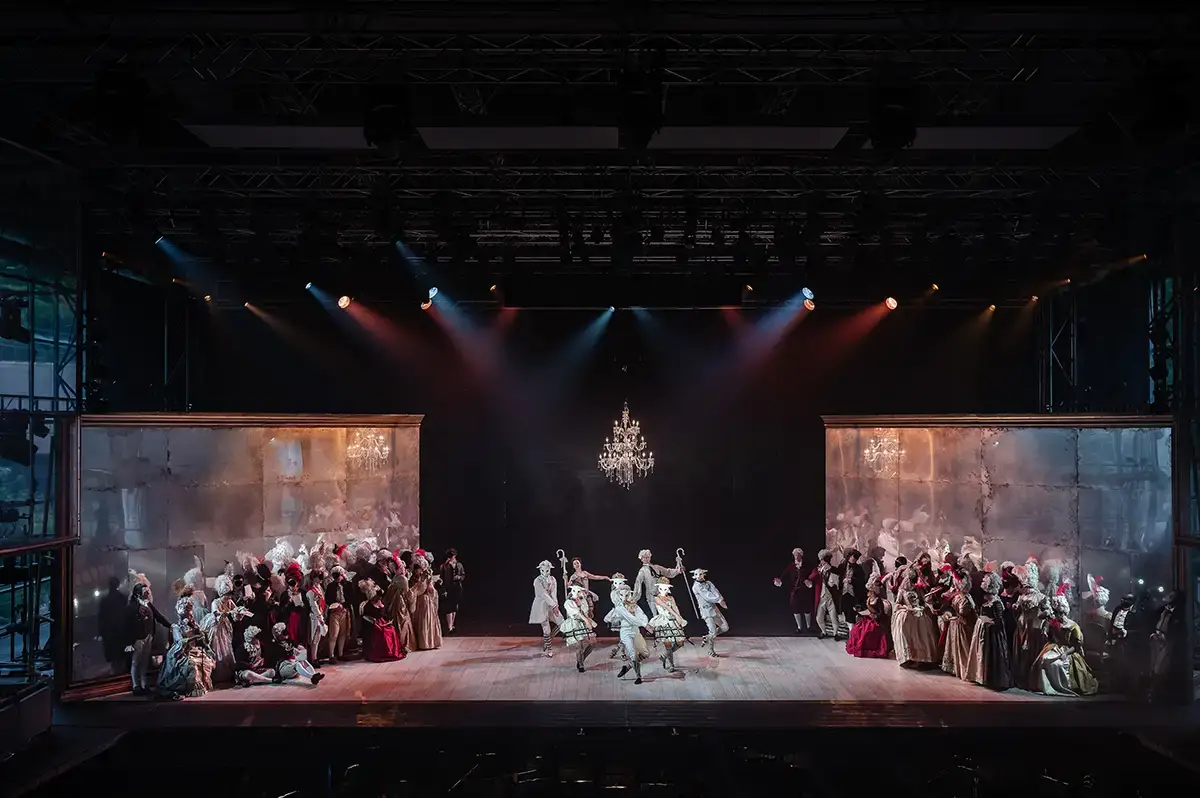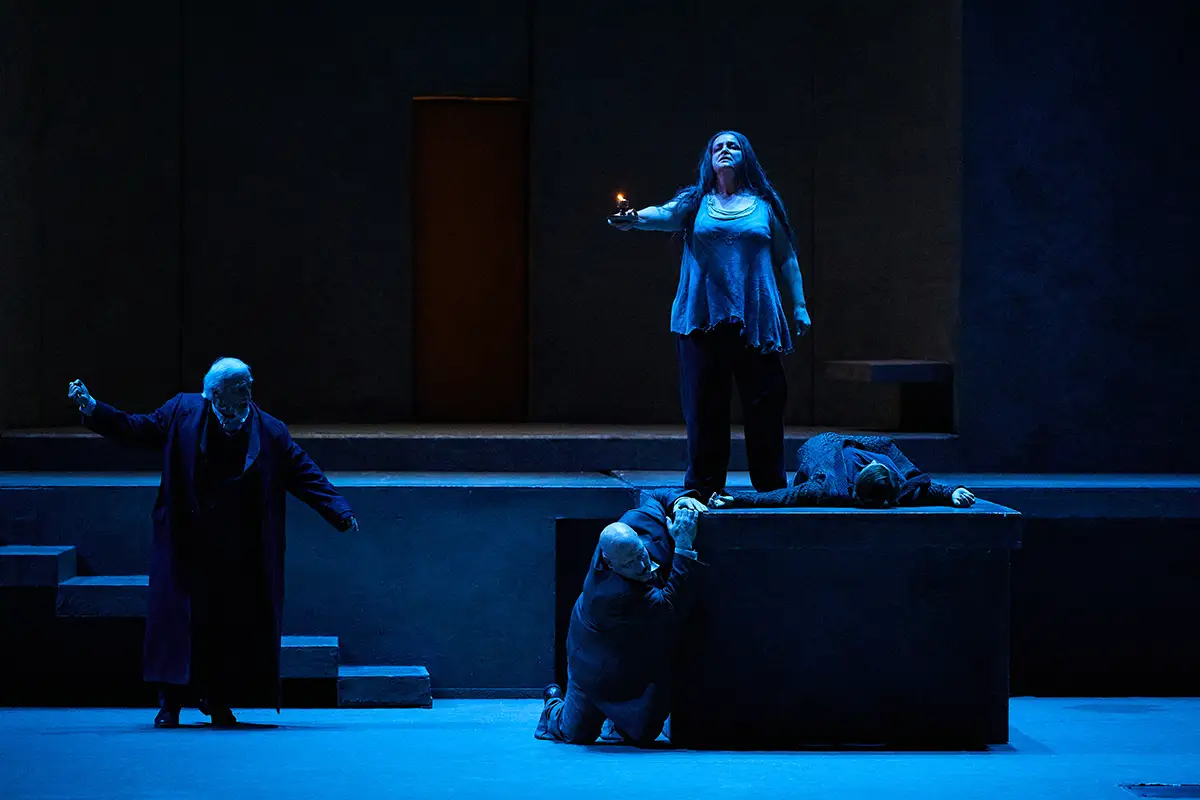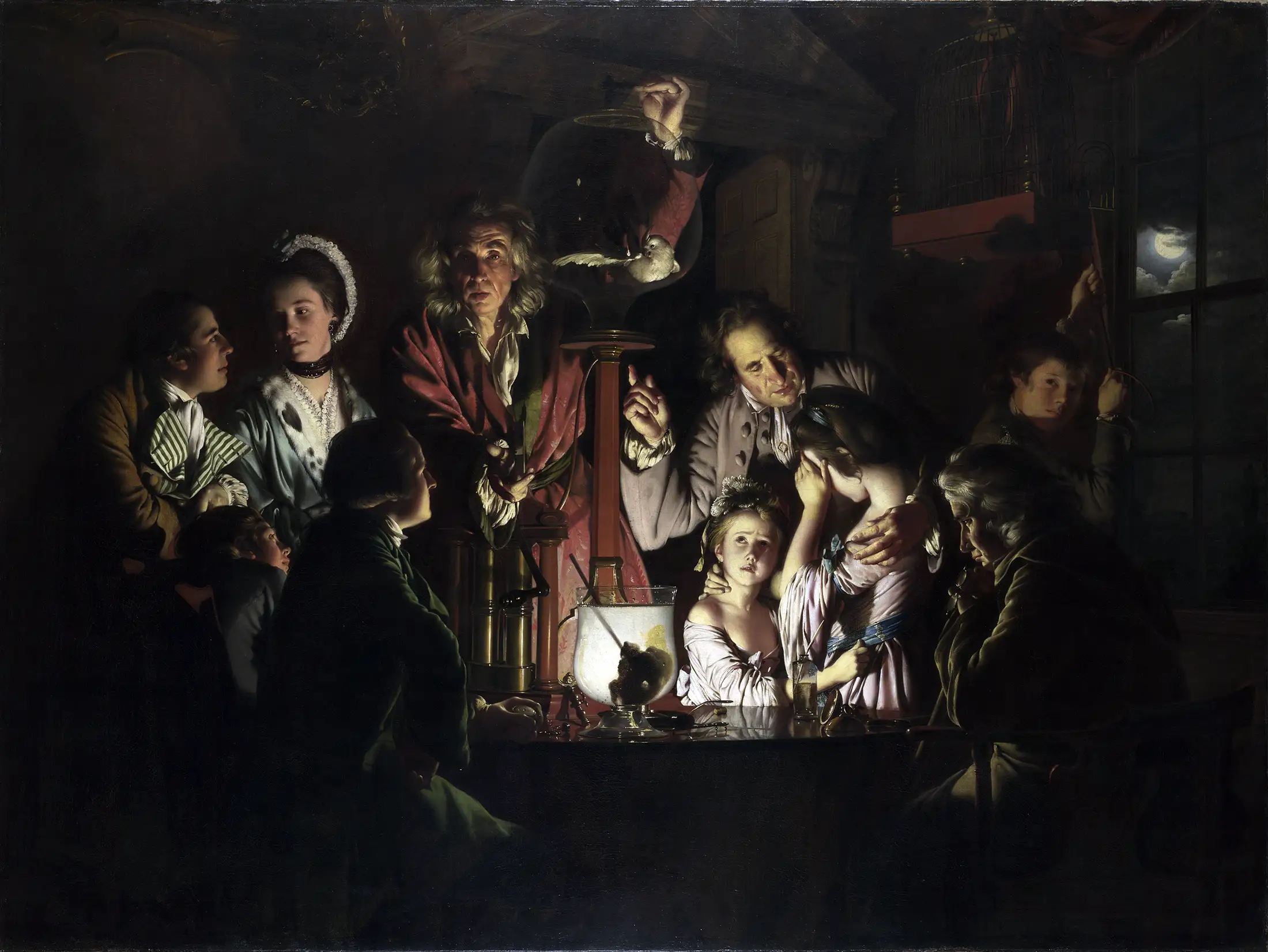
Tchaikovsky’s The Queen of Spades – or Pique Dame – was the last opera Stalin attended. Though he had some appreciation for classical music – as depicted in The Death of Stalin – he was never particularly fond of opera. In 1936 his scathing Pravda editorial condemning the opera Macbeth of the Mtsensk as ¨muddle instead of music¨, nearly ended Shostakovich’s career. Stalin’s rare visits to the Bolshoi were tightly guarded by truckloads of KGB agents, and put the fear of God in the staff and performers. From his box, he had a good view of the stage -unseen by the audience, but clearly visible to the performers.
A few weeks before his fatal stroke, Stalin attended a performance of The Queen of Spades. When the beloved baritone Pyotr Selivanov entered as Prince Yeletsky and spotted the ‘Great Leader’ in box A, he froze and his voice choked. Instead of singing, he recited the famous love declaration to Lisa. Selivanov could have been banished to the provinces, but Stalin found it rather amusing.
What does this story have to do with Garsington Opera’s excellent production of The Queen of Spades? I’ve seen a production set in the Stalin era, which worked to a point. Another director superimposed Tchaikovsky’s biography on Herman, and it is true that in a number of letters he quite clearly identified with the ¨hero¨ (should that not be anti-hero?). Tchaikovsky wrote in a letter to his brother: ¨Now I hope my warm and lively feeling for the hero of my opera may be happily reflected in my music.¨
Does the opera have a particular resonance with our age? I don’t really care, and director Jack Furness sticks with the original late 18th century setting – it works for me.
Pushkin’s original novella set the action during his own lifetime, in the early 1830s. But Pyotr and his brother Modeste, who wrote the libretto, wanted to pay homage to Mozart’s era. The pastoral called The Faithful Shepherdess, a masque within the opera, is a pure Mozartian pastiche and is staged with the right amount of tongue -in-cheek by Furness.
The late 18th century is in Russia also a time when the opulence, self-righteousness, arrogance and social indifference at the court of Catherine the Great reached new heights (or lows).

In Pushkin’s story, Herman is portrayed as an unscrupulous and remorseless character. His interest in Lisa is purely strategic—she is merely a means to gain access to the Countess, who holds the secret of a winning card strategy in the game of Faro. Herman hopes to win a fortune that will lift him out of poverty and earn him the respect of his aristocratic peers.
In contrast, Tchaikovsky presents Herman as a more romantic and tragic figure. His passion for Lisa is genuine, yet he is equally consumed by his obsession with obtaining the card secret from the Countess. Driven by the belief that wealth will enable him to marry her, his desire to obtain the secret of the three cards becomes all-consuming and his undoing.
Aaron Cawley’s Herman is a tormented, Dostoevskian figure, this is evident from the start. There’s no concealing his complex inner life, and Lisa is initially drawn to his passionate and desperate outbursts, tussled hair and all, that hardly seem romantic. Unlike Raskolnikov, however, Herman doesn’t seem to wrestle with guilt and initially takes no responsibility for the consequences of his actions – at least not until he receives Lisa’s letter, in which she forgives him for causing her grandmother’s death. Cawley is a helden tenor, but here he displays a very muscular and almost baritonal register. He’s terrific in the love duets with Lisa and the barrack scene when he starts to hear his inner demons. This is also when he’s faced with the ghost of the Countess, who reveals the card secret, on the condition that he marries Lisa.

Laura Wilde proves to be a more versatile soprano than most, imbuing Lisa with all the sweetness, heartfelt emotion, and dramatic intensity the role demands. More than that, she brings a natural effortlessness to the top notes that is truly striking. She is outstanding in the Winter Canal scene, conveying compassion, doubt, and profound disappointment. Abandoned by her madly obsessed lover, Lisa finally realizes she holds less allure for Herman than the gambling hall and that he has only been using her to obtain the card secret, before plunging to an icy death. American-born Wilde deserves to be seen and heard far more often on these shores.

Prince Yeletsky might not be the most memorable character in the opera were it not for his tender aria “Ya vas lyublyu” (“I love you, madly”). It’s arguably the most hummable melody in the entire work, which explains its enduring appeal to great singers over the generations. Roderick Williams brings just the right chivalrous sheen to the role, his luxurious baritone perfectly suited to the dignified young aristocrat newly engaged to Lisa.

The Philharmonia Orchestra and its conductor Douglas Boyd are having a blast. Tchaikovsky’s score is as masterfully orchestrated as ever, but it is also incredibly diverse – brimming with über-romanticism and neo-classicism, hints of a Chopinesque funeral march, echoes of Bizet, modal harmonies in the choruses and touches of Russian nationalism. The hallucinatory textures and sense of other-worldliness – wonderfully evoked in the lower register of the woodwinds (Bass clarinets) and the insistent viola – perfectly mirror Herman’s increasingly fragile state of mind. Boyd and the Philharmonia Orchestra rise to every challenge and they achieve the strong sense of impending doom that characterizes so many of the composer’s late works.
Tom Piper deserves a special mention. His simple, but very effective design – mainly consisting of three huge panels with distressed mirrors – never distract from the (very) dramatic proceedings. Lucy Burge’s choreography provides some light touches in an opera not known for its humorous episodes.
I’m not sure what Stalin would have made of Garsington’s staging of The Queen of Spades, but as far as I’m concerned this production seems to¨have all the right cards right now¨ (as another authoritarian leader put it recently).
Hopefully The Garsington Opera Festival will revive this production in the near future!
Seen at Garsington Opera June 2025. See their website here


